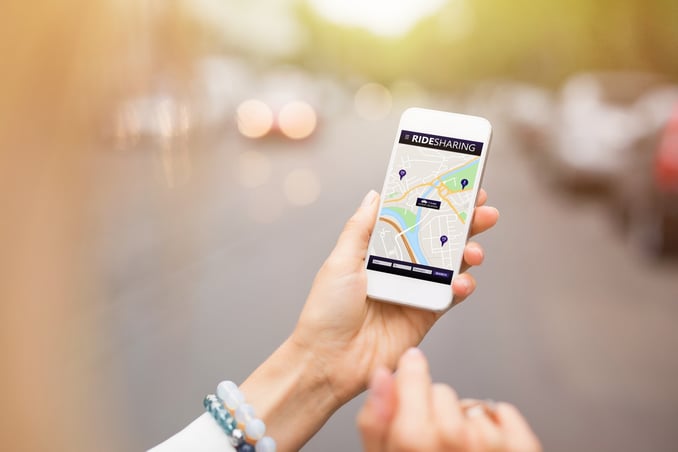
In 2016, Tampa was ranked the 7th most dangerous city for pedestrians by Smart Growth America, a national organization committed to making our streets, neighborhoods, and communities safer.
Drivers didn't fare better by much. Last year, Florida reported 395,438 car crashes. 165,956 of those involved injuries.
Last November, in large part in response to these numbers, the Hillsborough County Public Transportation Committee voted 4-3 to allow Uber, Lyft, and similar ride-sharing companies to do business in Tampa.
The vote created an alternative mode of transportation for tourists, commuters, and business people. Less foot traffic will hopefully mean fewer pedestrian accidents, but it also leads to more cars on the road. In the end, economic incentives and public demand outweighed the risks of increased traffic and car crashes.
Not everyone in the city or the state were happy with the vote. One particular point of contention was the fact that Hillsborough County permitted the ride-sharing companies to forgo the fingerprinting requirements spelled out in the state legislation.
Tampa City Council member Frank Reddick was so upset that he resigned from the board. In his mind, permitting Uber and Lyft to avoid the fingerprint requirements was a slap in the face to the state. He wanted to abide by the laws drafted by state legislators, and he couldn't endorse a deviation from those rules and restrictions.The Executive Director of the Hillsborough County Public Transportation Committee, Kyle Cockream also announced that he would end his term early.
Although many weren't pleased, the ride-sharing companies also had to make sacrifices. Uber and Lyft agreed to increase their insurance liability coverage, pay annual fees, and they made it clear they would complete thorough background checks of their drivers.
State Legislation Passes House and Senate: CS/HB 221
In March, the Florida House of Representatives passed HB 221, an updated version of previous bills aimed at regulating Uber and Lyft. Under the new law, these ride-sharing companies are no longer required to run fingerprints on all of their drivers.
The bill gets rid of restrictive laws passed by Orlando and other cities. When signed, it will create uniform procedures throughout the state. Legislators hope to clear up the confusion that previously existed. They're confident this move will encourage big money ride-sharing companies like Uber and Lyft to grow their businesses in the Sunshine State.
On April 24, 2017, Governor Scott tweeted that he looks forward to signing the bill into law. He, like most members of the legislature, sees the potential positive impact ride-sharing companies could have on the state.
What if you're involved in an accident?
Florida's ride-sharing law will be signed into law soon, but the debate isn't likely to end there. In states where Uber and Lyft currently operate, more and more passengers are complaining about insurance.
Uber and Lyft claim that their drivers are independent contractors, not employees. This way, the ride-sharing companies don't have to pay to insure their driver's vehicles. All of this is fine, as long as the driver's personal automobile insurance carrier agrees to pick up your claim. Unfortunately, many of them aren't doing so.
If you're involved in an accident while on a ride with Uber, Lyft, or their competitors, you can't afford to pay for the injuries yourself, and you shouldn't have to. Driver's insurance carriers often claim that the driver didn't carry commercial insurance.
If this happens to you and you find yourself without a way to pay your hospital bills, you can't sit around waiting for a solution. You need to act. You need to call the experienced attorneys at Lowman Law Firm.
Contact Lowman Law Firm
If have any questions regarding ride-sharing laws, or if you're involved in a car accident, give Lowman Law Firm a call at (352) 796-0016 or toll-free at 866-9 LOWMAN.

